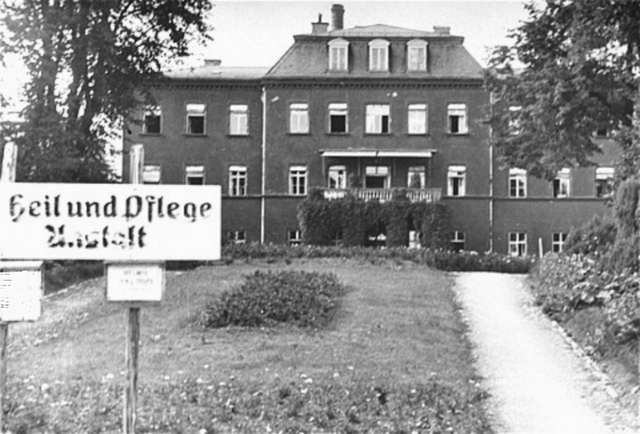After 1945
Hunger and deprivation, orders and obedience determined the situation of patients in psychiatric institutions until well after 1945. Eugenic ideas continued to have an impact; those affected by them in the Federal Republic of Germany and the GDR continued to be marginalized and stigmatized. The situation in institutions and homes only improved slowly as of the 1970s.
During the first »euthanasia« trials after the war, few perpetrators were sentenced to death or imprisonment. As of 1948, many trails ended with minor prison sentences or acquittals. According to the judges, the offenders had probably not realised the illegality of their actions. The courts often did not allow surviving patients to appear as witnesses. The majority of doctors involved were never called to account. The field of psychiatry in Germany only faced up to its past at a very late date.
The victims and their relatives fought long and unsuccessfully to receive compensation. In 1987, the Bund der »Euthanasie«-Geschädigten und Zwangssterilisierten (Federation of the People Damaged by »Euthanasia« and who Underwent Compulsory Sterilisation) was founded in in the Federal Republic. Even today, it campaigns for its members to be treated the same as other persons persecuted by the National Socialist regime. Only in 2007 did the German Bundestag outlaw the forced sterilization law.

© free